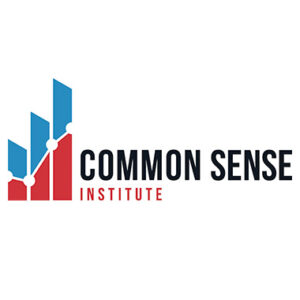What if Colorado Schools Were #1
A Quick Summary…
In 2018, Colorado Succeeds and the Common Sense Institute, in partnership with the Denver Business Journal and 18 industry partners, joined forces to inform Colorado voters and candidates on how education profoundly impacts the state and the need to center Colorado’s education system in the 2018 gubernatorial race.
As part of this initiative, the coalition commissioned a report that used economic modeling to answer the question: “What if Colorado schools were number one in the nation and what effect would that have on our state”? The report quantified the economic benefits of educational attainment/closing the skills gap and the impacts were staggering.
77%
of employers said they struggle to find Coloradans with the right skills
62%
of Coloradans believed high schools were not preparing students for the workforce or postsecondary education
(Source: Colorado Succeeds/Common Sense Policy Roundtable/Denver Business Journal Employer Survey, 2018.)
57,600 more high school graduates earning some form of post-secondary education,
$12 billion+ added to the GDP, and an additional $8.5 billion in earnings.
*Estimated from economic study completed in 2018
With this and other data at hand, the coalition made formal recommendations to Colorado’s next governor to transform the state’s education system.
What if our learners were better prepared for Colorado’s jobs?
The Problem We Were Seeing:
Colorado Has One of the Largest Opportunity Gaps in the Country
More than three-quarters of all jobs in Colorado (including half of all science, technology, engineering, and math jobs) require some education or training beyond high school.
BUT FOR EVERY:
– 100 students who start high school,
– 82 will graduate, and just
– 24 will successfully earn some type of postsecondary degree or credential within four years.
At a national level, U.S. News ranks Colorado 45th in high school graduation rate (down from 29th a decade ago) and 20th in college readiness. The system also reflects gross inequities. In some grades and subjects, economically disadvantaged and minority students are three grade levels behind their peers.
This talent gap between available jobs and student readiness reveals the education system’s failure to modernize to keep pace with economic changes.
82 out of 100
24 out of 100
As the 2018 gubernatorial race took off, Colorado Succeeds seized the opportunity to raise awareness among constituents and elected officials.
What if Colorado employers no longer had to import talent from elsewhere?
What Colorado Succeeds Did About It:
Imagine a Stronger Colorado

Ahead of the gubernatorial election, Colorado Succeeds partnered with the Common Sense Institute, 18 industry partners, and the Denver Business Journal to commission polling, surveys, and economic modeling on the topic of education. Specifically, the group sought to evaluate the extent to which voters and business owners prioritized improving the state’s education system.
Perhaps not surprisingly, the report demonstrated alignment between voters and employers on key solutions. Nearly 90% support the need to attract and retain effective teachers, provide access to work-based learning and technical education, and develop computer literacy skills.
IN ADDITION:
72% of voters
said business should play a greater role in efforts to improve the state’s education system.*
62% of Coloradans
believe our high schools are not preparing students for the workforce or postsecondary education.
*Source: Colorado Department of Education/Colorado Commission on Higher Education (2022)
A subsequent economic modeling study sought to answer the vital question, “What if Colorado schools were #1 in the nation?” The study answered the question by measuring the economic impact of Colorado high school graduates going on to obtain the level of post-secondary education needed to meet the workforce demands of the Colorado economy.
What if more graduates continued their education beyond high school?
What Happened?
The Extraordinary Benefits of Closing the Skills Gap
The results of the report were clear: Investing in Colorado’s future workforce would have an astounding impact on the state’s economy.

If Colorado students obtained the level of education needed to compete in today’s economy,
OVER THE SPAN OF 10 YEARS*:
Colorado would gain
57,600 additional graduates
with post-secondary education levels needed for Colorado’s jobs
These graduates would earn
an additional $8.5 billion
*Estimated from economic study completed in 2018
THE ADDITIONAL INCOME WOULD MEAN MORE MONEY FLOWING INTO THE ECONOMY…
$1 billion
in new revenue and public savings
$472 million
increase in auto spending
$1.4 billion
increase in home spending
LEADING TO GREATER ECONOMIC OUTCOMES FOR COLORADO
14,600
new jobs created
$12 billion+
in increased GDP growth
Presented By


Supported By










In Partnership With








Official Media Partner

This case study only features candidates representing Colorado’s Democratic and Republican parties. As a nonprofit, nonpartisan network of business leaders, Colorado Succeeds and its partners in this effort do not endorse or oppose candidates.
Additional Resources
Looking to partner on a great idea?
Drop us a line.







